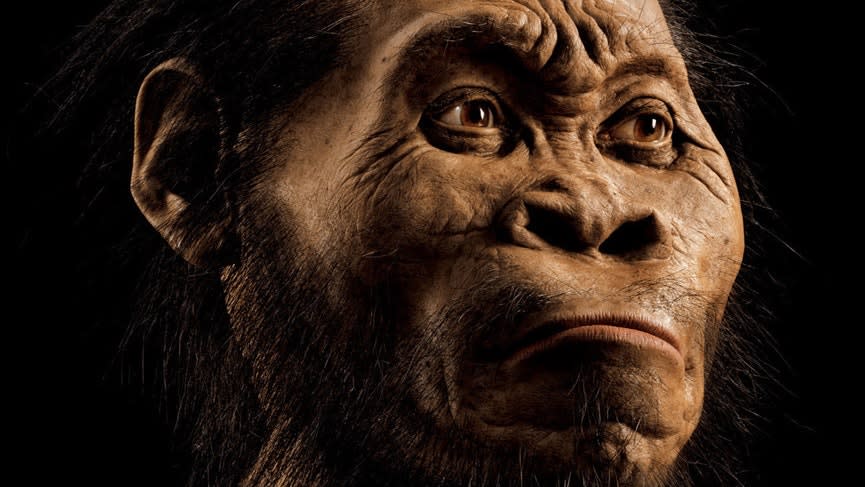Ancient remains 'could rewrite history of human intelligence'

The brains of a mysterious ancient species of hominin could rewrite the history of human intelligence, researchers have claimed.
‘Homo naledi’ had brains about a third of the size of ours (not far off the size of an orange), but new scans show surprising complexity.
Homo naledi had frontal lobes like humans (and unlike apes), and scientists suggest that they may have been more like us than we thought.

Scientists were surprised by the modern structure of Homo naledi’s brain.
The remains were unearthed in a cave in South Africa in 2013, and date from 236,000 to 335,000 years ago.
MOST POPULAR TODAY ON YAHOO
Experts think they’ve finally solved mystery of disappeared Malaysian Airlines flight MH370
Royal wedding: Meghan Markle’s father ‘will not walk her down the aisle’ to marry Prince Harry
At least 58 Palestinians killed as Israeli forces open fire during Gaza border protests
The cave where the bodies were found also suggests that bodies were placed there deliberately – a surprising behaviour from creatures with a brain a third of the size of ours.
Dr Lee Berger of the University of the Witwatersrand said, ‘H. naledi has got all that, but packaged in the brain the size of a large orange.
‘Here we have a violation of that sacred cow – the idea there was this link between ever increasing brain size paralleled with ever increasing complexity – yet you have this tiny brain which is in effect every bit as complex as a modern human.

 Yahoo News
Yahoo News 

